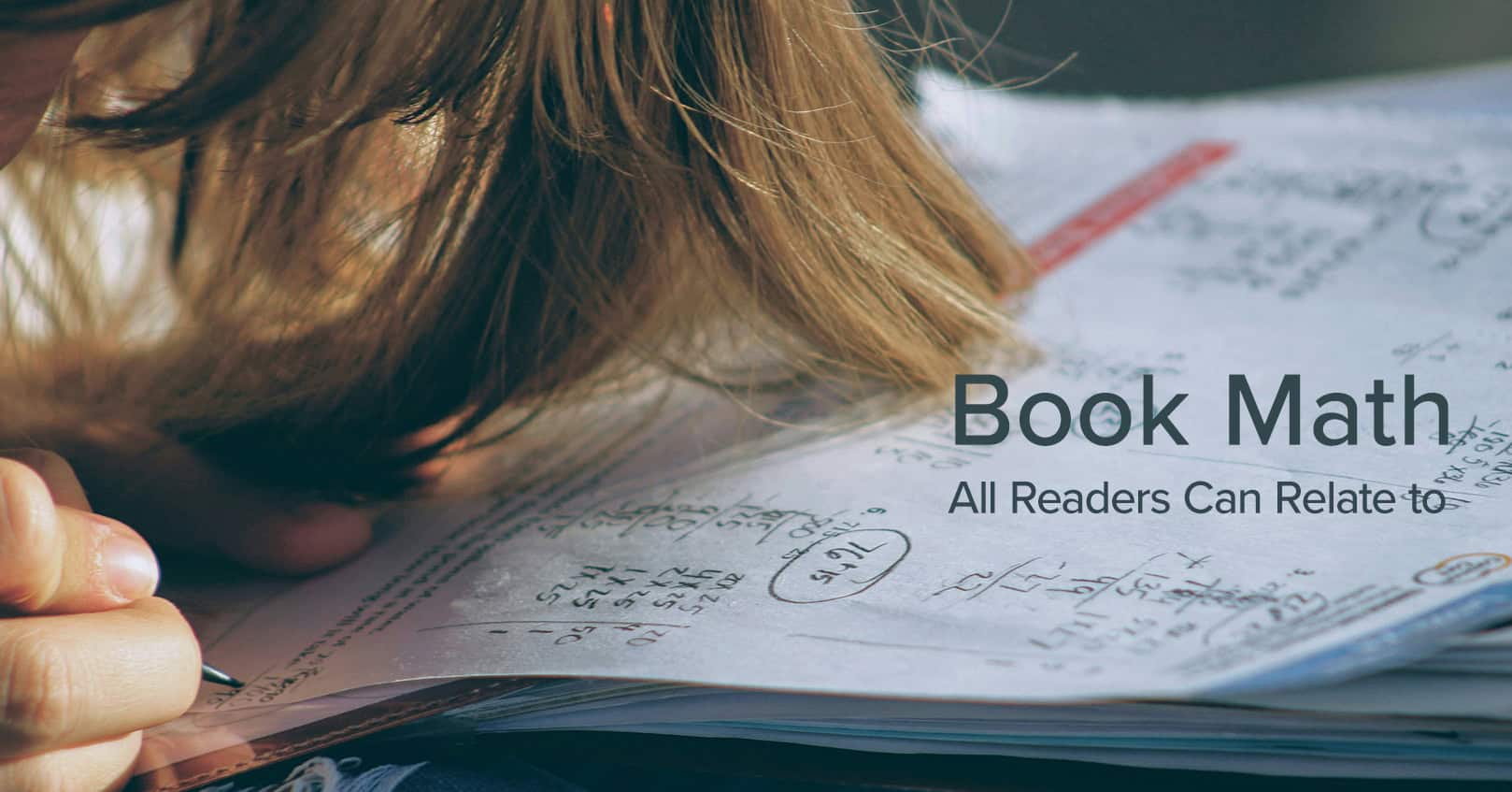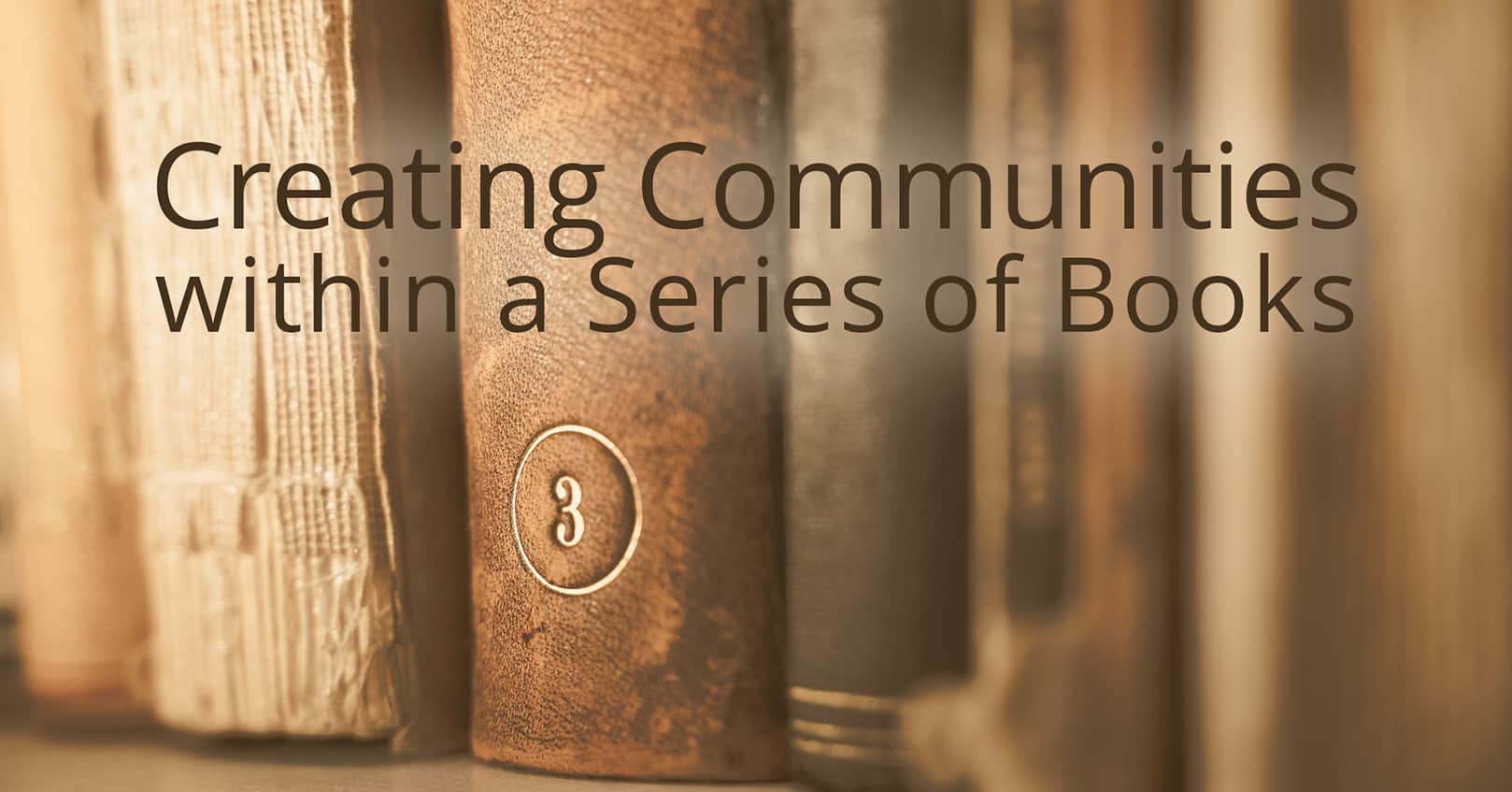
Everyone seems to have heard of girl math these days. Those thrifty ways girls add up money to justify their purchases. It’s a skill I’m proud to say I’ve accomplished over the years. However, I’ve got to say, my girl math skills pale in comparison to my book math skills. If you’re an avid book reader like me, I bet you’ve used book math in the past too, and these examples will feel very relatable. If you’re not sure what book math is, then let me present the following book math examples for your entertainment.
Examples of Book Math That Are Sure to Make You Laugh
- If you buy a new bookshelf, the cost of books to fill the shelf doesn’t matter because without them the shelf doesn’t matter.
- If you DNF a book at any point, you’ve finished it and chosen an alternate ending. It’s basically a free choose-your-own-adventure book.
- Also when you’re about to DNF a book, you can instead skip to the last chapter and then you’ve finished it.
- When you make the sacrifice to purchase a paperback version instead of the hardback version, you can then treat yourself to more books to the equivalent price of the original hardback book.
- If you start listening to an audiobook at 1.5 speed, you’re already 33% done with the book.
- When you donate books, you must restore your balance by repurchasing that same amount of books.
- All books read on KU are free books. If you read enough KU books, you actually made money.
- If you accumulate 4 BOTM credits, and then use them all in one month, you just got 4 free books. (And not getting your first BOTM book for just $5 is losing money)
- Your Audible credits = Free books.
- Books that come in book box subscriptions that you’ve already paid for are basically free.
- If you have a library card, you’ve saved thousands on books, so you might as well treat yourself to that special edition.
- You often think that it’s too late to start a 20-page chapter, so you might have to quite halfway through but then accidentally read four or five chapters instead.
- Getting a book on sale equals bonus money to spend on a second book.
- You always finish reading a chapter to save yourself time re-reading the first half of the chapter upon resuming.
- If you don’t buy two books when they are on a buy one get one 50% off sale, you are losing money.
- If you start a book that you didn’t realize was part of a series, then buying the next books are required to finish it and, therefore, free.
- You are able to read a book 3x faster than audiobook speed, but are not able to listen to it being read to you that fast.
- If you forget about a book you’ve preordered, then it’s a gift.
- Having seven stacks of unread books in your home, but none of them are the one that you need to read right now.
- The second half of a book is always shorter than the first half.
- You may count your TBR list not by how many books there are, but by how many series they are. Much more manageable!
- Signed copies of books are collector’s items, and therefore buying them is an investment.
- The perfect length romance or thriller novel is 300-350 pages, but fantasy or sci-fi books under 400 pages are suss.
- All books purchased on your birthday are just presents from the store.
- When you buy books with a gift card, you saved that much money.
- Buying books at the library sale is charity and therefore doesn’t count toward book spending.
- Buying books secondhand is actually saving money. So the more you buy, the more you save.
- Money spent on books is educational and therefore all books are free.
- You should always buy books in pairs so that they won’t get lonely.
- If you’re buying books from a series that you already own part of, those books are basically free.
- If you own books of a series but none of the covers match, you don’t actually own the series.
- If you buy an ebook, audiobook, and physical edition of the same book, it’s only one book.
- If multiple books are by the same author, they’re only one book.
- If all the books are from the same genre, then they’re really only one book.
- If all the books have pages with words on them, then they’re all just a remix of the dictionary and therefore just one book.
- A box set is obviously one book.
- If you purchase an anthology of novels, then you get several books free. That’s just smart.
- A series of stand-alone stories that involve the same character equals one book.
- If you own your favorite book but not your favorite edition of it, you don’t own that book (and you need to buy it now).
- If you can read them all in one sitting, then it’s clearly one book.
- If you can carry everything without dropping any books, it’s only one book.
- If all your books fit on your e-reader, then it’s only one book.
- If everything can fit into one bag, then, you guessed it, it’s also only one book.
- If all the books arrive in one package, it’s actually only one book.
- If your “one” book somehow ends up costing several hundred dollars, it’s not your fault. Blame inflation.
- If you’re buying books from a small local shop, you’re not spending money, you’re stimulating the economy.
- Any money spent on books is money well spent because at least it’s not drugs.
- When you use Book Cave to get daily free and discounted ebook deals, you’re saving thousands of dollars so you can treat yourself to that new hardcover and a cup of coffee.
Now, which of these book maths are you guilty of? Share with us in the comments below!
Happy reading!
















Comments